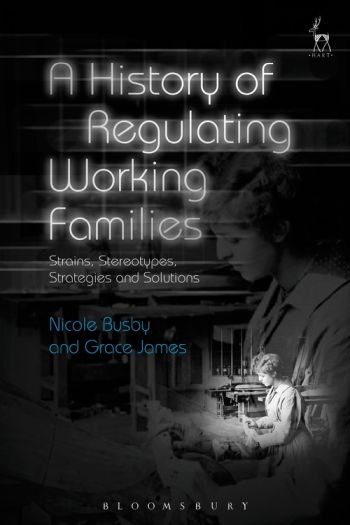
Families in market economies have long been confronted by the demands of participating in paid work and providing care. Across Europe the social, economic and political environment within which families do so has been subject to substantial change in the post-World War II era and governments have come under increasing pressure to engage with this important area of public policy. In the UK, as elsewhere, the tensions which lie at the heart of the paid work/unpaid care conflict remain unresolved posing substantial difficulties for all of law's subjects both as carers and as the recipients of care. What seems like a relatively simple goal – to enable families to better balance care-giving and paid employment – has been subject to and shaped by shifting priorities over time leading to a variety of often conflicting policy approaches.
This book critiques how working families in the UK have been subject to regulation. It aims to: